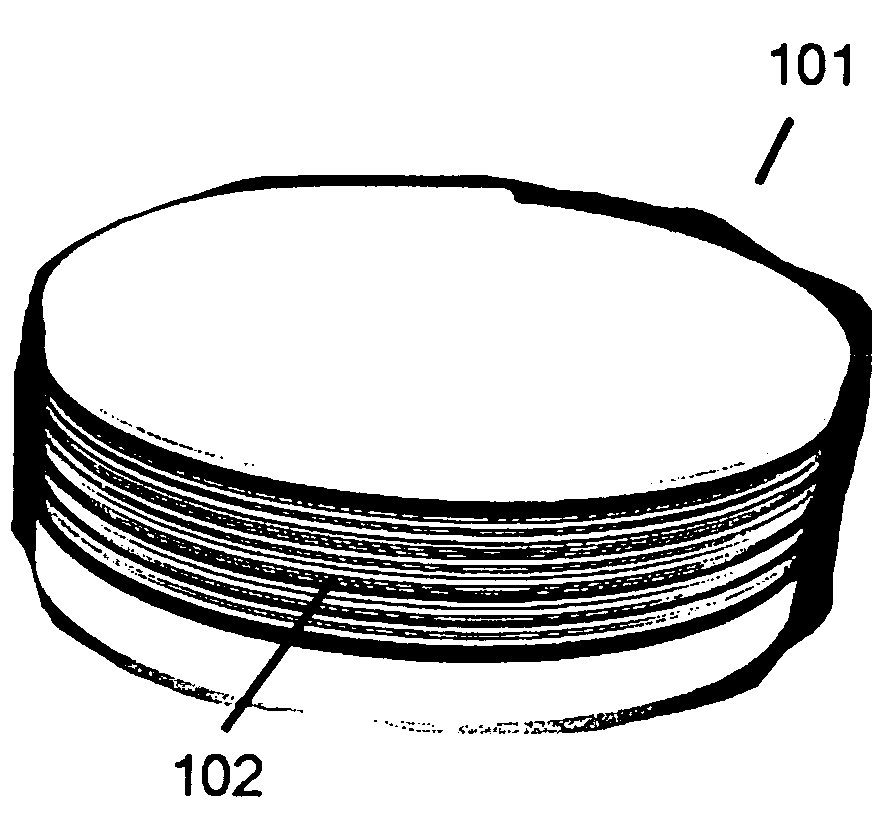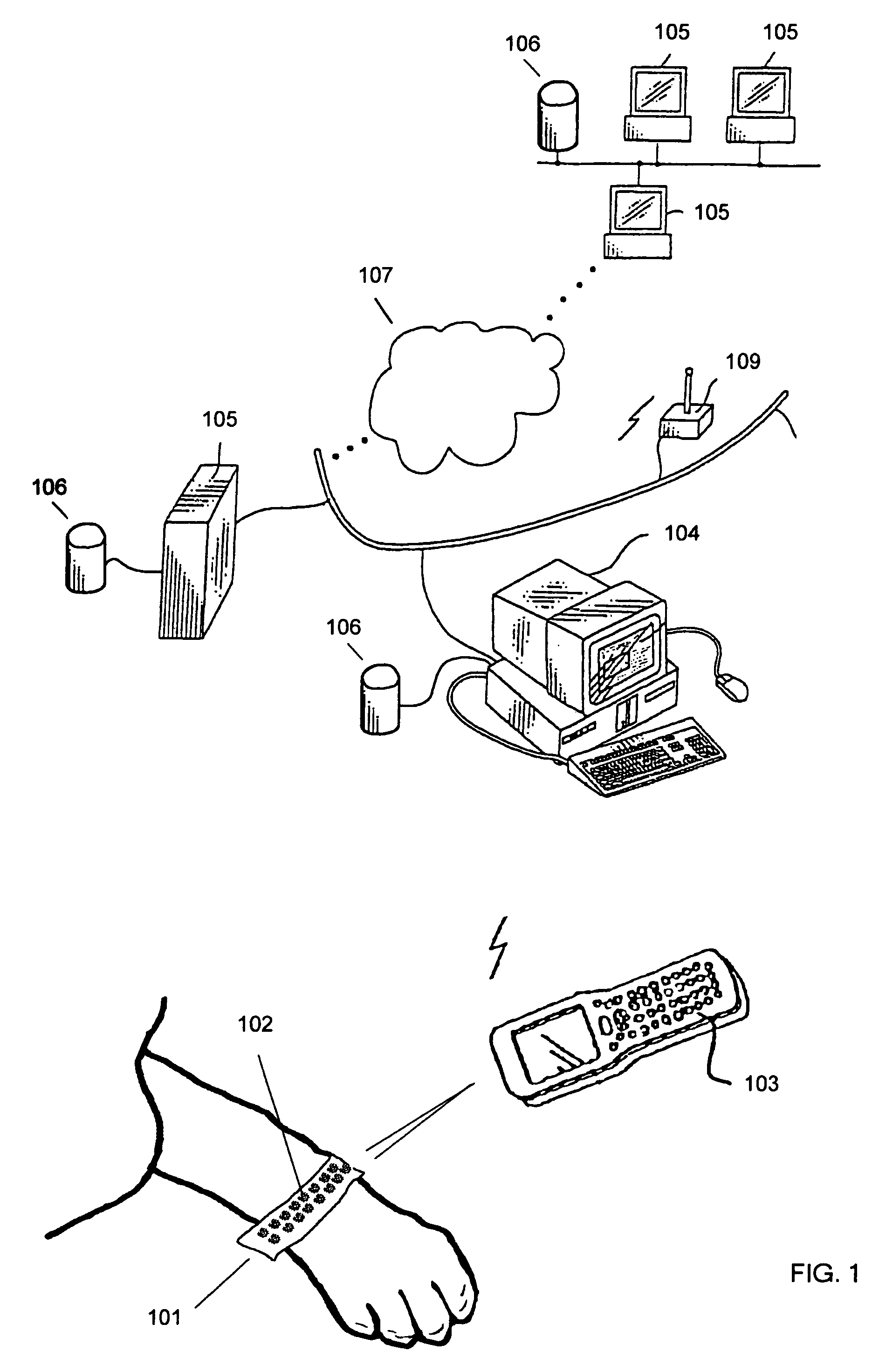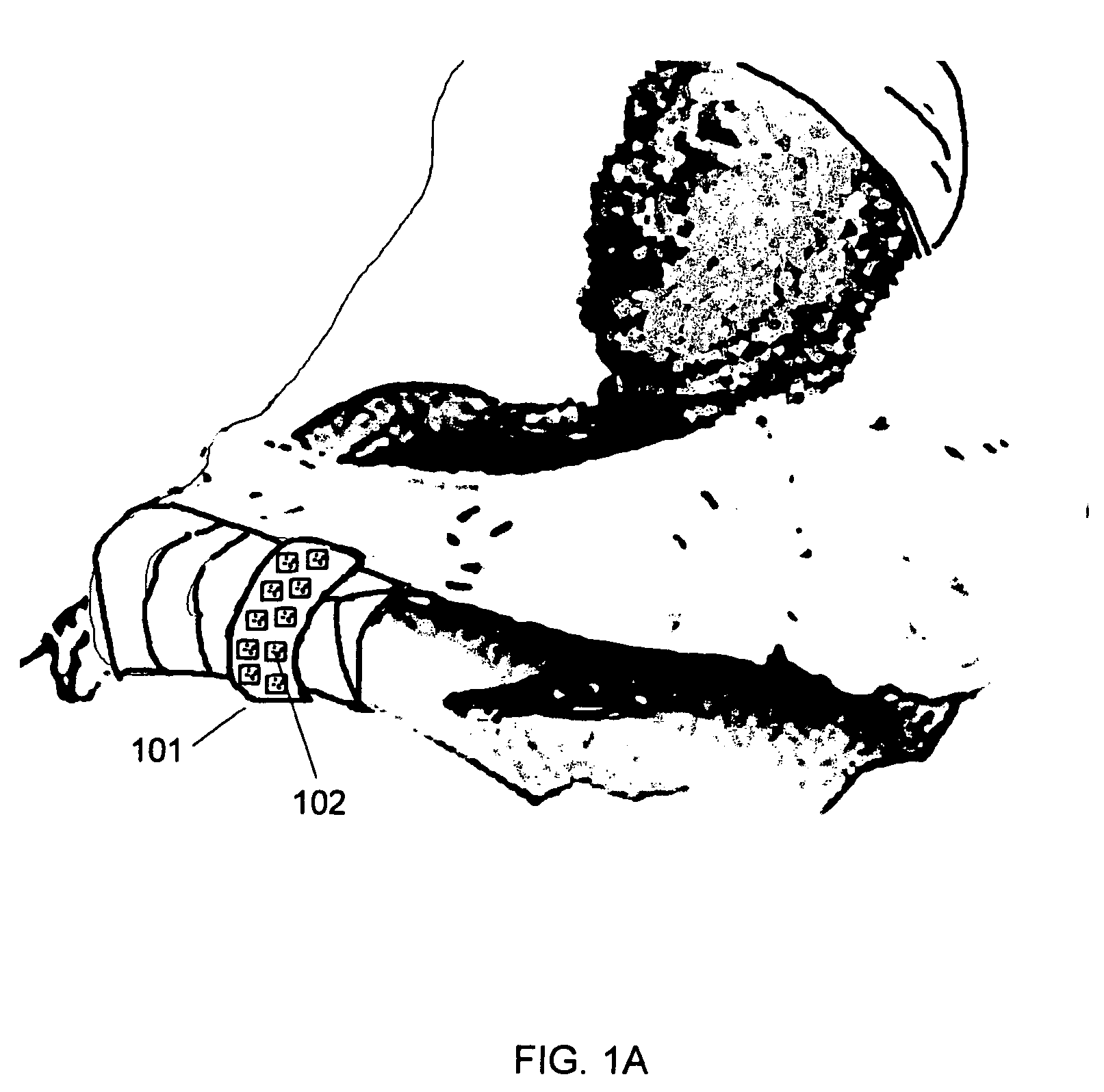Bar coded wristband
a wristband and bar code technology, applied in the field of bar coded wristbands, can solve problems such as linear bar codes, problems associated with such bar coded wristbands, and problems that can be present,
- Summary
- Abstract
- Description
- Claims
- Application Information
AI Technical Summary
Benefits of technology
Problems solved by technology
Method used
Image
Examples
example 1
[0095]FIG. 8 shows an inventive wristband 101 with multiple 11.7 mil MicroPDF417 2 D bar codes 102. In addition to the multiple 2 D bar codes, there is a small break for human readable information. In practice such breaks should be minimized in order to preserve the high likelihood that a symbol will be in view for a bar code reader without needing to manipulate the wristband.
example 2
[0096]FIG. 9 shows an inventive wristband 101 with multiple 11.7 mil Truncated PDF417 2 D bar codes 102. Again, In addition to the multiple 2 D bar codes, there is a small break for human readable information. In practice such breaks should be minimized in order to preserve the high likelihood that a symbol will be in view for a bar code reader without needing to manipulate the wristband.
example 3
[0097]FIG. 10 shows an inventive wristband 101 with two offset rows of multiple Aztec symbols 102. In addition to the multiple 2 D bar codes 102, there is a small break for human readable information. In practice, even small breaks should still be minimized in order to preserve the high likelihood that a symbol will be in view for a bar code reader without needing to manipulate the wristband. A single row of Aztec symbols continues without break under the human readable information.
PUM
 Login to View More
Login to View More Abstract
Description
Claims
Application Information
 Login to View More
Login to View More - R&D
- Intellectual Property
- Life Sciences
- Materials
- Tech Scout
- Unparalleled Data Quality
- Higher Quality Content
- 60% Fewer Hallucinations
Browse by: Latest US Patents, China's latest patents, Technical Efficacy Thesaurus, Application Domain, Technology Topic, Popular Technical Reports.
© 2025 PatSnap. All rights reserved.Legal|Privacy policy|Modern Slavery Act Transparency Statement|Sitemap|About US| Contact US: help@patsnap.com



